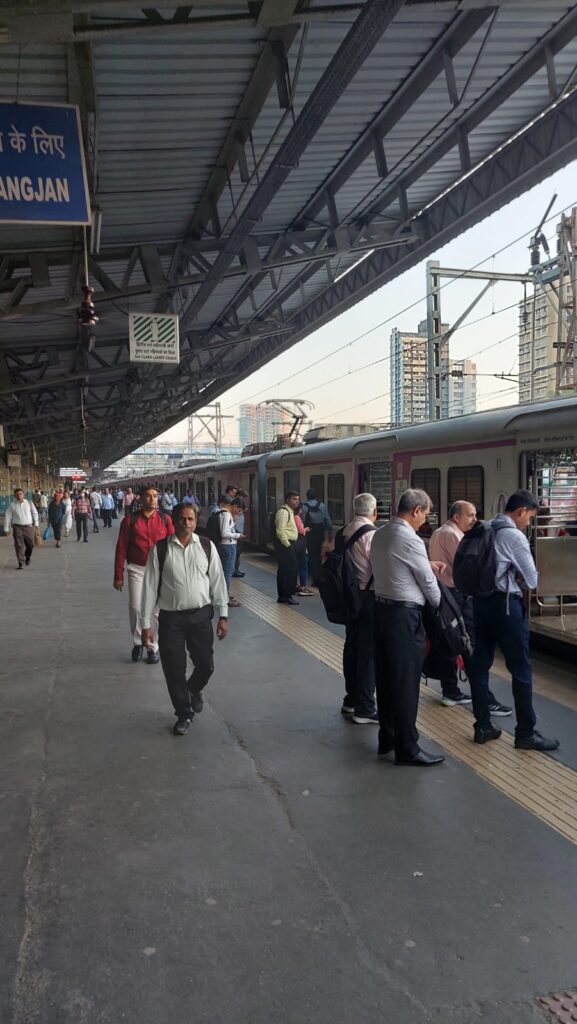A few days ago I discovered that if I timed my departure just right, I could catch the AC local to work. Now to say “catch” is of course, incorrect usage of the langauge, but I am merely transliterating my usual phrase here because my blog my rules.
Anyway, I had always seen the local go past before each time I reached the station. So naturally I had to start waking up earlier than usual. But it seemed inviting — the thought of riding the AC train to work. From the outside it looked fantastic. The passengers seemed so calm, as if they didn’t belong to the same cohort that jostles around in the non-ac locals.
You know how people inside a Starbucks seem? Everyone seems so much in control of their lives. Everyone looks good too. The lights and the shiny cutlery make it even more believable. Like a Mc Donald’s for grown ups


But after many failed attempts, I found myself at the right time at the station. I had no trust in my capacity to maintain a routine, so instead of a monthly pass I bought a single one way ticket. But I was in for a surprise when I saw all the gentlemen in corporate attire queuing up even before the local had arrived on the platform. Not a word was spoken. You just had to go there and stand behind the nearest person. You couldn’t mill about as one normally does. And you couldn’t even pace up and down the platform because otherwise you would miss your seat. Not like standing in queue would guarantee it either. But nevertheless, people stood in queue. So I too stood behind one group of stock market wallahs.
I was curious about this phenomenon. So I asked them on how did the queuing come about. Some of them said that they had just simply decided to be more orderly, as they were paying many times more than the usual fare. A semblance of sophistication was expected.
To my mind, this was social control at play. But social control of this sort is generally enforced by authority figures. Take the guards at the Mumbai Metro stations, they enforce queuing at every platform to regulate the crowd. It has now become a habit for many commuters but the guards are still stationed there.
The Marxian view of social control says the bourgeoisie controls the proletariat for economic gains. This is true in the production setting but at the platform, the state does not regulate it. Even Durkheim, when speaking about social control from the lens of crime in the society, said that the society reacts negatively to certain behaviours.
But here, the group is not really preventing deviance – here, the act of jumping in on the train in a disorderly manner, it is actually an accepted way of things. It is instead placing a higher collective responsibility of ensuring order for the sake of the entire group on itself. It is actually going against the established norm. So in a way, a sort of re-norming phase is being witnessed on the AC local.
Karl Manheim classified social control as direct and indirect. This seems to be an example of indirect social control, where passengers realise the need to conform to the group to avoid any public shaming or protest that may ensue from other irate passengers. But this begs the question why would only this group hold each other to a higher standard but not the others? Is it do with class or is it a matter of convenience?
Conforming to the social norm when you are indoctrinated in a certain way is an acceptable answer. But this cohort has been taught otherwise. And all of us have believed that getting into the train even before it halts is a surefire way of getting some space for your butt.
Enter, the AC Local and suddenly we realise what we have been missing along.
It is something to worth looking into.
The AC train journey on the other hand is quite good, and is a nice peaceful experience. Except for all the uncles who watch their Facebook videos without their headphones kept on. Some norms are hard to change.